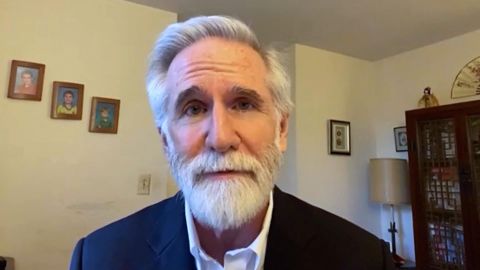Read Transcript EXPAND
KIM GHATTAS, CONTRIBUTOR WRITER, “THE ATLANTIC”: Thanks so much for having me, Bianna. It’s great to be on the show. You’re absolutely right that was painful to write this piece. It was very emotional for me. But also I think it struck a chord with a lot of people who read this piece from Beirut to Hong Kong. I really feel that we’re in a moment which transcends the problems that we’re facing in Lebanon, which are quite tremendous. It transcends even the situation in Afghanistan and the specificities of Hong Kong. This is really, I think, a story of a global unraveling of some of the liberal values that people thought were only going to continue and progress forward when a new world order came into being in the 1990s. And it has been painful to see how Lebanon has gone from surviving or overcoming a civil war, spending three decades rebuilding, only to have this progress taken away from it for various reasons that we can get into. And sitting in a room watching my own country implode, I was fascinated by the headlines coming out of Hong Kong. And it almost felt like I was reading about my own country. And what I like about doing these stories that transcend borders is, as I said, that they strike a chord elsewhere. I was contacted by a young Chinese who knows Lebanon, who knows Hong Kong, and who told me that reading the story really touched him, because he was hoping, growing up in China, that his country’s future would be Hong Kong, and his hopes have been dashed as well. And I found that incredibly touching.
BIANNA GOLODRYGA: And you’re seeing in all three places people are fleeing. And you list some stunning statistics in this piece, an estimated 40 percent of Lebanon’s doctors, 30 percent of its nurses are gone. The American University of Beirut has lost 15 percent of its faculty. Hong Kong has lost over 1 percent of its population. We all saw thousands of Afghans desperately trying to flee the country it as the Taliban was trying to convince some to stay because we need, you need, those countries need, obviously, its best educated and professionals to stay behind in order for the country to survive. What is the mindset there in Beirut now as you are there right now and you list everyone else that appears to be fleeing?
GHATTAS: It is really the brain drain that we’re seeing in these three places that is going to change the heart of these countries, these cities. The heart of the society and I refer to some of the writings that others have done as well where they describe, you know, Lebanon, as we know it is gone, Hong Kong, as we know it is gone. The progress that we had seen in Afghanistan has been erased.
About This Episode EXPAND
Democrats are at a pivotal moment in the passage of their infrastructure bill. Fossil fuel giant CEOs testified about whether they knew their products were fueling climate change. Facebook CEO outlines a new vision for the company, but experts warn it hasn’t done enough. Kim Ghattas focuses on three places that once had real hope for democracy. The supply chain crisis is crippling the U.S.
LEARN MORE




